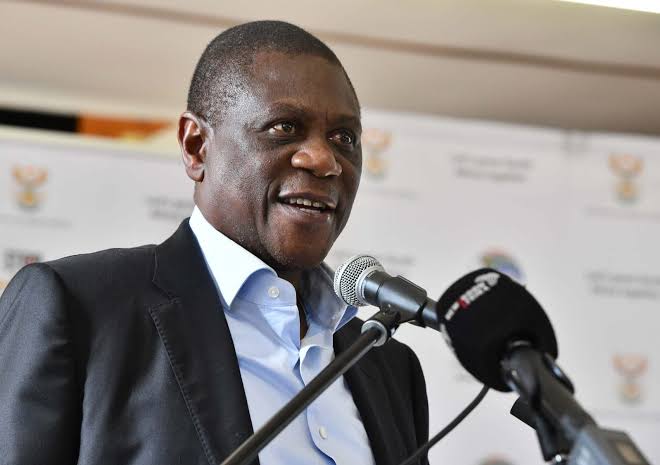News
Mashatile Declares War on Water Corruption: “Failure Costs Lives”

Deputy president lays down the law on municipal water mismanagement and criminal infiltration in city systems
South Africa’s water crisis is no longer just a story of burst pipes, dry taps and late tankers, it’s a battleground, and Deputy President Paul Mashatile is making it clear that the gloves are off.
Speaking in Parliament this week, Mashatile didn’t mince his words. The water sector, he said, is under siege not only from aging infrastructure and poor governance, but also from what he called “water mafias”: organised syndicates sabotaging public systems to cash in on emergency tanker contracts.
A Nation Held Hostage by Corruption
Water mafias aren’t a figment of political rhetoric. Across metros like Johannesburg and eThekwini, residents have raised alarms on social media and community forums about the sudden spikes in water outages—often in the same neighbourhoods, week after week. Tankers arrive hours later, charging municipalities inflated prices.
“It’s a business model built on chaos,” Mashatile said during his response in the National Assembly. “They disrupt so municipalities are forced to depend on them. What started as a stopgap measure has become a racket.”
And it’s not just criminal actors. Mashatile pointed fingers at municipal managers, water boards, and contractors, warning that those failing in their duties—by design or by incompetence—would face real consequences.
“We cannot afford weak leadership in these institutions. When people don’t deliver, action must follow—because failure costs lives.”
A Culture Shift in Public Service
For years, South Africans have grown used to poor service delivery in water and sanitation. From Emfuleni’s sewage spills to Giyani’s long-delayed water projects, public trust has eroded. Mashatile wants to change that.
He’s backing stricter performance standards and is working with the Minister of Water and Sanitation, Pemmy Majodina, on a national accountability framework.
“Restoring order in the water sector is not just about fixing pipes it’s about fixing the system,” he said. “That means rooting out corruption, enforcing discipline, and making it crystal clear: if you fail the people, you’ll answer for it.”
He also stressed the need for clearer communication with communities,a longstanding complaint from residents who often go days without updates during service failures.
“Just like Eskom provides load-shedding schedules, municipalities must inform people in advance when repairs or outages are expected. That’s governance 101.”
Infrastructure Progress, But Is It Enough?
While Mashatile’s words drew praise from some corners of civil society and government, actions will speak louder than parliamentary declarations.
This week, the Free State celebrated a milestone in infrastructure with the opening of the Ash River Tunnel—a 38-kilometre engineering feat that brings water from Lesotho to South Africa’s economic heartland, Gauteng. The project, a joint venture between Lesotho and South Africa, also supports hydroelectric generation for Lesotho’s domestic use.
It’s a reminder that solutions do exist, and that regional cooperation can still deliver win-win outcomes.
President Cyril Ramaphosa has since weighed in, noting that national plans are in place to tackle broader water issues, from pollution and drought to poor project execution. But for many citizens, hope is tempered by a familiar refrain: Will it actually happen this time?
Public Reaction: Tired But Watching
On X (formerly Twitter), reaction to Mashatile’s remarks was cautiously optimistic.
“At least someone’s finally calling it what it is. Water corruption has killed service delivery in my town,” posted @Nathi_Mzansi from Limpopo.
“This is all talk until we see arrests and convictions,” another user fired back. “Consequence management can’t just mean redeployment.”
The Tap Is Running Dry on Excuses
South Africa’s water sector sits at a crossroads. Years of mismanagement, coupled with deliberate criminal interference, have turned a basic human right into a political flashpoint. What Mashatile offered this week wasn’t just a policy position—it was a warning.
If municipalities, boards, and contractors don’t clean up their act, the state will come knocking. And if the government fails to follow through, citizens might start knocking even harder with protests, legal action, and the growing momentum for local government reform.
Water is life. And right now, it’s under attack. Whether Mashatile can deliver on his promises remains to be seen. But South Africans, tired of empty taps and empty promises, will be watching.
{Source: IOL}
Follow Joburg ETC on Facebook, Twitter , TikTok and Instagram
For more News in Johannesburg, visit joburgetc.com



























